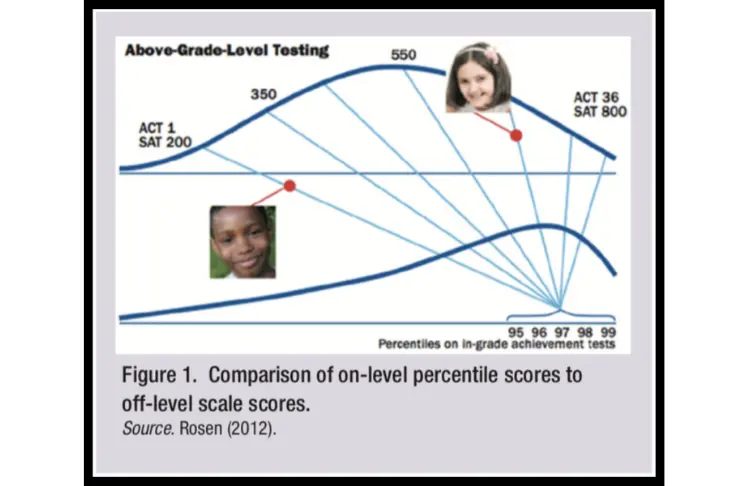
by Akil Bello
While Florida recently made news because of controversial laws, spats with the College Board, remaking colleges, questionable standards, and elevating unproven ideological exams, the Sunshine State has long been known for its reliance — or overreliance — on high-stakes tests.
From bonusing active teachers based on their high school test scores to suddenly abandoning the PARCC exam after investing resources in its development, to being the only state to require admission tests during the height of the pandemic to adopting an unproven pseudo-Christian test for scholarships and college admission, how Florida implements testing requirements is often at odds with the best practices.
The solution administrators came up with was to segregate, stereotype, and blame Black students (and only Black students) for the systemic failures of the school.
In addition to the testing environment, Florida’s governor has created a racially hostile environment under the guise of racial blindness and anti-wokeness. Ron DeSantis publicly said AP African American Studies is “lacking in educational value,” created state history standards that claim slavery was a benefit to Black Americans, attacked the Critical Race Theory strawman, and banned the study of anything that might suggest white Americans have a history of racial crimes.
These dual forces came to a head at Bunnell Elementary at the start of this school year.
A School Assembly Just for Black Students
After the third straight year of low scores, the Flagler County school held an assembly to address those scores. Under the leadership of principal Donelle Evensen, the assembly gathered all Black fourth and fifth graders for a presentation to address low scores.
Yes, the solution administrators came up with was to segregate, stereotype, and blame Black students (and only Black students) for the systemic failures of the school.

In a school district with just 3% Black teachers, two Black teachers were tasked with delivering a presentation that identified “The Problem” as “AA have underperform “ (sic) to fourth- and fifth-grade students.
This typo-ridden presentation claimed that the school is “supposed to have at least 41%” of students scoring level 3 or higher. The clear message of the assembly and presentation was that Black students were to blame for the low pass rate.
Apparently, the principal believed the Black students, who made up only 19% of students, were the cause of the more than 50% of students scoring below a 3 on the state tests.

The implications of this assembly go well beyond this single occasion and emphasizes the need for critical analysis of systemic practices and policies with a focus on racially discriminatory impact.
But, since Florida has endeavored in the last few years to ban any study of the impact of race on their policies and decision-making, it will be increasingly difficult to put events like what happened at Bunnell Elementary in proper historical context. The entire event highlighted the challenges Black Americans still face in this country and highlights how wrongheaded the Supreme Court finding in SFFA is.
The Presumption of Lower Intelligence
The presumption of low test scores (and thus lower intelligence or ability) has not only led to assemblies but has driven policies and curtailed opportunities. The impact of discrimination doesn’t stop at the assembly in middle school but continues to hurt students at every educational level.
A large body of research has shown that even college application letters of recommendation can perpetuate biases. Most recently, research led by Brian Kim with the College Admissions Futures Co-Laborative, found that “on average, Black students had fewer sentences in their letters mentioning Intellectual Promise, even among letters written by the same counselor.“
The persistent underestimation of Black students’ intelligence has been shown to restrict access to gifted and talented programs, AP courses (especially those in STEM), and dual credit programs.
Dr. Jack Schneider, professor at the University of Massachusetts Amherst and author of “Off the Mark: How Grades, Ratings, and Rankings Undermine Learning,” wrote:
“Student standardized test scores are only useful if they change learning conditions for students. Channeling additional resources to particular neighborhoods and schools, for instance, is a logical and equitable way of acting on patterns in test results. Simply demanding more from educators and young people, however, is beyond useless — it suggests that motivation, rather than structural inequality, is the root cause of the so-called achievement gap.”

The discriminatory impact of bubble tests has even been felt in professional sports. The National Football League, as part of their concussion settlements, used “race-norming” to allocate Black players lower payouts based on the presumption they had lower starting intelligence, based on test scores.
But if bias and perception of lower scores were the only problem, that might be manageable. According to reporting in the Dayton Beach News-Journal, a teacher told students that if they didn’t improve their test scores, they would end up in “jail or being shot or killed.”
Hostile School Environments
Comments like this further stigmatize students and create hostile school environments. Research shows that Black students face racist actions five times a day. Bias causes Black students to be seen as older and less innocent and subjects them to harsher discipline and more frequent suspensions, all of which can lead to lower grades and worse educational outcomes. Facing a near-constant barrage of direct and indirect negative messages about their academic ability creates a cycle of low expectations and underperformance.
Seemingly, intelligent adults charged with educating students should have considered that there could be multiple reasons for underperformance on tests over the last three years, ranging from a pandemic to scores having no consequences and limited benefits for students, which would clearly impact performance.
What’s the Incentive to Do Well on Tests?
In Florida, almost everyone has an incentive to do well on tests, except students.
Districts and schools are provided additional funding, schools receive higher rankings, and teachers can receive salary bonuses, but students gain little to nothing. Test scores for fourth and fifth graders aren’t used for promotion or to provide timely instructional feedback to students and teachers. Additionally, the test questions are not provided to students, teachers, or parents, so students have no way to review their performance and understand what they might need to work on. So why would students care about test scores?
Compounding the callous insults of the low score accusations and segregation, the administration’s proposed solutions were equally insulting and demonstrated a lack of knowledge about educational best practices.

The presentation instructed students to “commit to maintaining high iReady scores” and to “concentrate on passing all curriculum-based assessments.” So the best solution that these trained educators could come up with was to say “do better” and “try harder.” Adding insult to injury, these non-solutions, which presumed the students weren’t trying, were couched as a competition with Chick-fil-A and McDonald’s as prizes.
Sadly, Evensen is apparently unaware of the years of research that has shown that incentive programs have marginal benefits at best and often have no measurable impact on scores. The session likely reinforced stereotype threat, discrimination, and segregation and undermined the confidence of all Black students regardless of their scores.
Our test scores were really good, but they made it look like our test scores were not good at all, and other students tested higher.
KENADEE ROBINSON, FOURTH-GRADER
Bunnell Elementary fourth-grader Kenadee Robinson told The Dayton Beach News-Journal, “I don’t think they pulled us in for our test scores. I think they pulled us in for our race and because they just wanted to congratulate all the other students and not us,” she said. “Our test scores were really good, but they made it look like our test scores were not good at all, and other students tested higher.”
Black Students Aren’t the Problem
In putting the blame on students, the principal is not only projecting her anxiety about scores onto students but is also overlooking the responsibility of the adults in the building.
This seems on brand for someone who, after being forced to resign, blamed a Black teacher for the assembly, said that she “certainly didn’t deserve what’s happening to her,” and tried to claim community with the Black students she’d wronged; all the while seeking the absolution of the largely white faculty and staff.
Rather than being a model of effective educational development for all students, Florida has emerged as the poster child for indoctrination and reform that reinforces systemic biases and inequalities disguised as education. This latest event shows not only the failure of individuals in the system but the continued problem of the system itself.
The rest of the nation isn’t innocent, either. The racist perceptions of the academic abilities of Black children exist beyond Florida.
Florida’s laws, policies, and practices created an environment of test and punish that allowed this most recent WTF moment and highlighted why affirmative action and race-conscious admissions were implemented and are still necessary.
After 250 years of slavery and 90 years of segregation, Black children have been forced to navigate 70 years of bias and stereotyping.
But the rest of the nation isn’t innocent, either. The racist perceptions of the academic abilities of Black children exist beyond Florida.
To excel as a Black student in the American educational system, a child must overcome economic, racial, systemic, and other biases while still achieving academically in a system that either refuses to acknowledge this country’s painful history or uses it to humiliate you, criminalizes your hair, and presumes your skin color makes you less capable.
Despite these attacks, Black children and their families have and will continue to achieve despite the educators who use test scores to reinforce their biases against Black children.

Akil Bello is an educator, entrepreneur, and advocate who has worked in admissions testing and educational access for almost three decades. A nationally recognized authority on educational access and standardized testing, Akil was a founding partner and CEO of Bell Curves, a test preparation company that helps schools and non-profit organizations develop affordable solutions for underserved students. Currently, Akil serves as Senior Director of Advocacy and Advancement at FairTest, where he works to build resources and tools to ensure that large-scale assessment tests are used responsibly and transparently to benefit students. Akil attended an HBCU and ultimately earned a bachelor’s degree from a university in Brooklyn.















